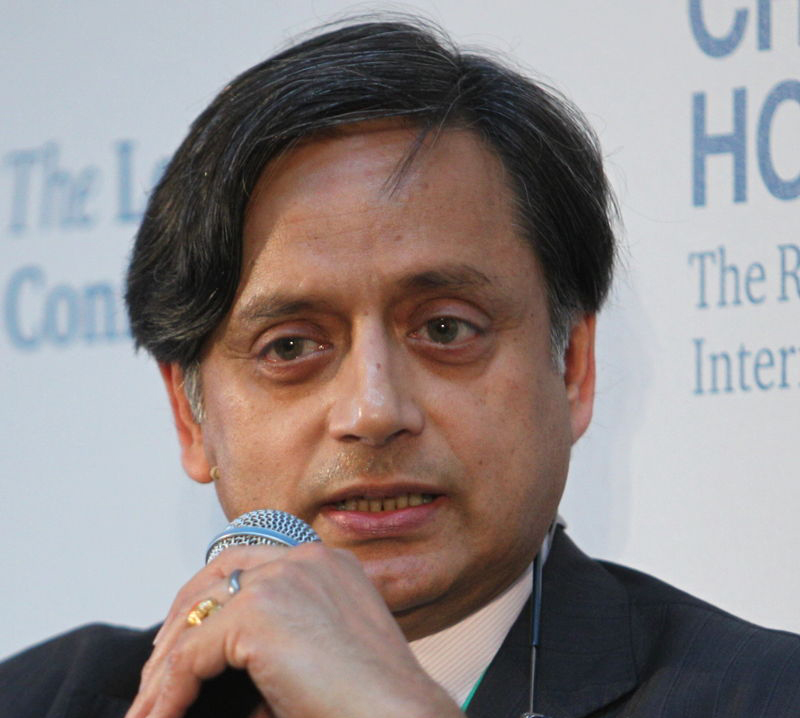Shashi Tharoor is a gasbag
Ravi Shanker Kapoor | July 23, 2015 3:52 pm

Prime Minister Narendra Modi has not covered himself in glory by praising Congress MP Shashi Tharoor’s Oxford speech in which the latter castigated Britain for its rule over India. For the Prime Minister’s commendation is also a tacit acceptance of the school of historiography that the Congress wants to impose on us. In a nutshell, it is about depicting the Brits as the worst rulers the country has ever suffered, the natural corollary being that what followed after the British was a new dawn, a new awakening, and a rejuvenated nation. Nothing could be farther from the truth.
Let’s begin with a most important assertion that Tharoor made: “India’s share of the world economy when Britain arrived on its shores was 23 per cent. By the time the British left, it was down to below 4 per cent. Why? Simply because India had been governed for the benefit of Britain. Britain’s rise for 200 years was financed by its depredations in India.”
But what, pray, is India’s share of the world economy today? According to World Bank data, our gross domestic product in 2014 was $2.06 trillion, whereas global GDP was $77.86 trillion. That is, after 67 years of rule by Indians, mostly by the Congress, it was less than 3 per cent of the world economy.
This is not to say everything was hunky-dory during British rule. Nobody denies the terrible things that the British did in India—the massacres, the loot, the racism, the exploitation. British historians themselves have written in great detail about the misdeeds of their countrymen in India and elsewhere; even the Rightwing historian Niall Ferguson has never tried to hide the unlovely truths about his own country.
By the way, what Tharoor said has been said myriad times before. In his India Today, British communist Rajani Palme Dutt presented the theory of India’s de-industrialization and consequent poverty and misery. And most of the material Dutt used to posit his arguments came from British documents, statistics, and figures.
Britain’s record in India is quite unsavory, but to say that Britain’s rise for 200 years was financed by its depredations in India is ignoring the tectonic changes that happened in the West in general and Britain in particular after the Renaissance. There were a large number of thinkers who changed the course of history not only of Britain but of the world: Hobbes delineating his social contract, Locke enunciating his political philosophy, Hume adding the dimension of skepticism, Newton explaining natural sciences, Shakespeare enriching life, John Stuart Mill championing the cause of liberty, Darwin revolutionizing our concept of life, and several other personages who are responsible for the world as we know it today. There was the Age of Reason; there were countless inventors and entrepreneurs who made the Industrial Revolution possible. It was these developments that made the West grow and prosper; this was the reason that the countries which were scarcely any imperial powers, like Scandinavian nations, also rose in the period that Tharoor mentioned. Britain’s rise, of course, became spectacular because of the Empire that it was able to acquire over the centuries.
While momentous changes were happening in the West, India was ruled by the Mughals who were primarily interested in increasing the size of their territory and the number of their wives. Those who arose from the ruins of the Mughal Empire—the Marathas, the Sikhs, the Jats, et al—also followed in the footsteps of Akbar, Jahangir, Shah Jahan, etc. Our contacts with Westerners were many and varied, but did any of our rulers set up a university on the patterns of Cambridge and Oxford? Did they encourage science? Did any of them try to revive the traditions of Aryabhatta, Varahmihir? Did they improve upon the ancient texts on medical sciences? Did they set up libraries that made Western works available to Indian scholars and students?
On their party, did Indian scholars try to acquaint themselves with the great works of modern philosophers, scientists, and other thinkers? No, they continued with the same old pedantry, the same rotten traditions of learning that had lost touch with the reality, the same iniquitous caste system with its million oppressions, the same misogynistic conventions.
The British were no angels, which is not surprising as they were rulers and rulers are either bad or very bad. The Muslims who ruled before the British were infinitely worse; and, those who followed after August 15, 1947, were also worse than the British. In fact, British rule was the best that we got in the second millennium.






























